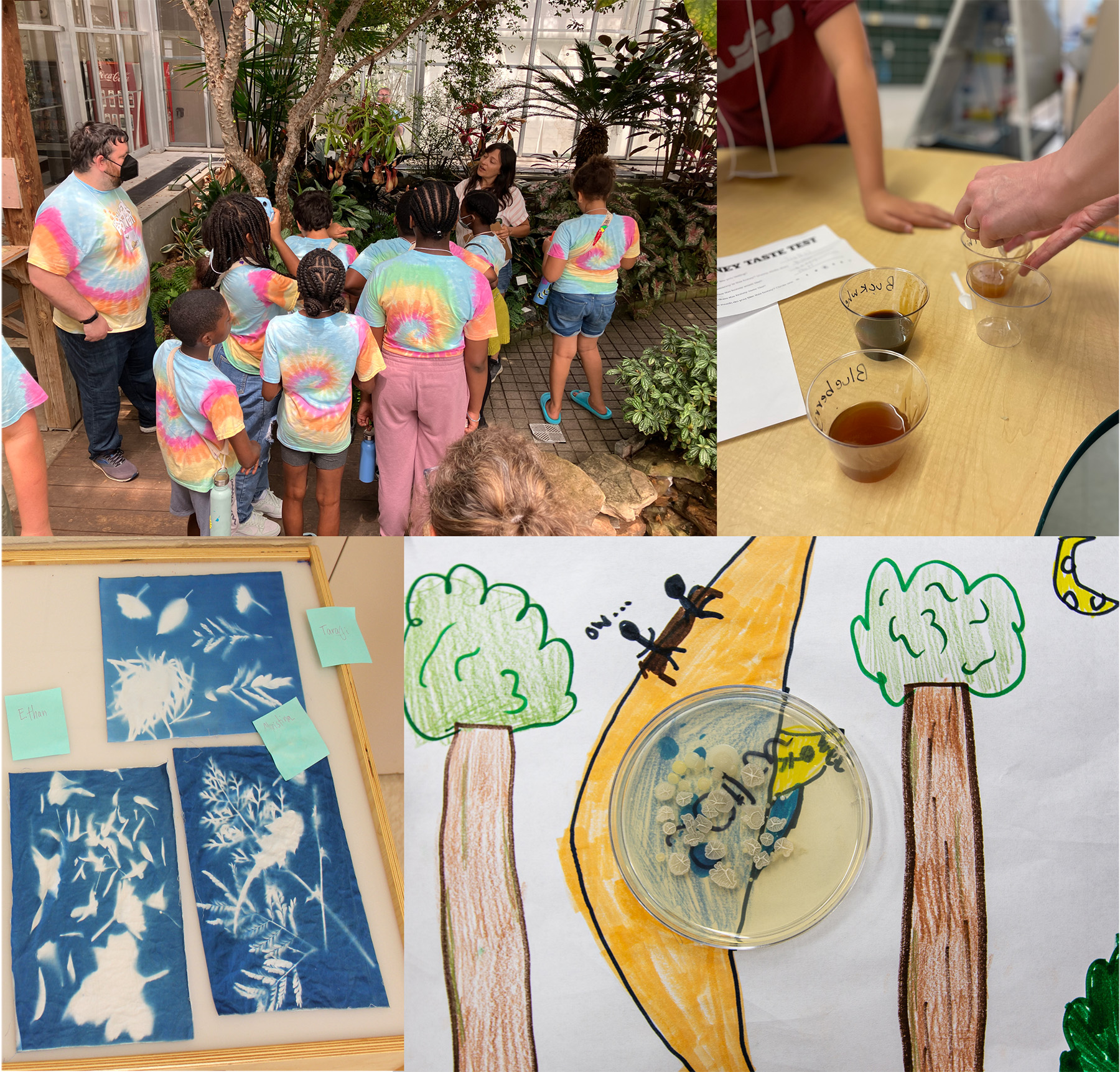Activities that revolve around science provide children with the opportunity to develop different skills, including communication, problem solving, perseverance, and learning to work in teams. The Pollen Power camp, started in 2013, targets students from underrepresented populations in STEM and teaches them to observe the world around them with a scientific mindset.

Usually the camp includes 6th-8th grade students. This year, however, the organizers partnered with the Champaign Unit 4 School District to cater to students from 1st-5th grade. The camp was conducted in person at Stratton Academy of the Arts from August 1st to August 5th.
The campers conducted a week-long experiment where they investigated what conditions help garden cress grow. They used several different setups: adding honey or vinegar, using hot water or cold water, or too much or too little water. Although the campers had other experimental ideas—growing the plants in outer space, without oxygen, or without gravity—these were discarded due to the lack of necessary equipment. The results were perhaps exactly what one would expect. The plants grew best when they were watered with appropriate amounts of room-temperature water. One result, however, stood out. The plants that were kept in the dark grew much faster than the control and they lacked chlorophyll. “I learned that plants can grow without sunlight,” said Dyani, a camp participant who set up the experiment.
In addition to tracking the growth of garden cress every day, the campers also carried out smaller experiments and activities, including extracting chlorophyll from leaves, isolating bacteria from their surroundings, measuring pH levels in common household items, assessing different types of honey, and using leaves to create shadows on cyanotypes—prints that create a distinctive greenish-blue color when they are exposed to UV light. “The camp was fun! We learned new things,” said Taraji, one of the campers. “I learned that bacteria smell,” said Grady, another member of the camp.
“It was exciting to see students learn new concepts quickly! They were so engaged as so much of this material was novel for them," said Zanne Newman, a Magnet Site Coordinator at Franklin STEAM Academy Middle School who helped to support the camp. "We got to see them interpret what they were learning through their daily journals, art projects, and their discussions.”
The afternoon portion of the camp also included a special visit from different members of the Urbana-Champaign community. The students met with researchers at the University of Illinois and gardeners from Delight Flower Farm, an environmentally-friendly flower farm that aims to provide our community with local, sustainable options for flowers. As an added bonus, the campers also planted sunflowers. Many of them were surprised that the seeds were not the edible version that they were used to.
Pollen Power is incomplete without a visit to the Carl R. Woese Institute for Genomic Biology. On August 4th the organizers gave the students a chance to visit the Illinois campus where they toured the National History Building with Andrew Suarez (GNDP), a professor of entomology and the Head of the Department of Evolution, Ecology, and Behavior. They also participated in scavenger hunts, where they looked for different insect and plant life across the campus; checked their Petri plates of bacteria in the teaching lab at the IGB; and visited the greenhouses. “We saw cacti, orchids, and plants that looked like squash but they could move,” said one camper.
“This year provided some interesting challenges, including tailoring the activities to a younger audience and hosting everything away from our usual base of operation at the IGB,” said Daniel Urban, a senior outreach activities coordinator at the IGB. “However, everything came together without a hitch, and both the students and the counselors really enjoyed their time there.”
For volunteering opportunities, contact Sarah Choi, IGB Outreach and Education Coordinator, at schoi44@illinois.edu.
